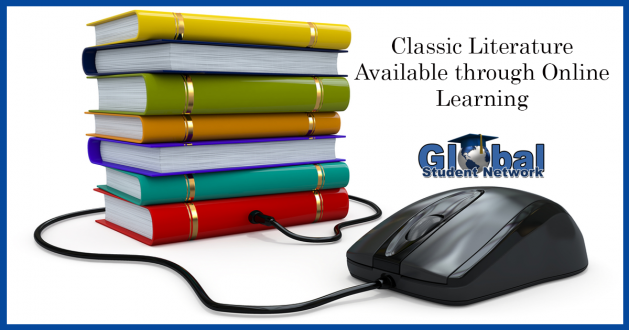Based on educator’s efforts to relate to students in ways they understand in the modern context, more and more staples of the K-12 school experience have been relegated to information extracts and “snippets” that can be presented to students in a quicker and more consolidated way. This approach often means that education must be molded to a student’s screen-time habits and online lifestyle. Unfortunately, for many students, this screen-time preference has relegated the study of “real literature” to the “delete and trash” online graveyard.
But what is “real literature?” And how does it relate to “classic” literature? If a book is not a recognized “classic” does that mean it’s not “real literature?” Generally speaking, classic literature refers to works that were written sometime from 1000 BCE and 410 BCE, as in ancient Greek, Roman and Chinese literature. But some newer works are also considered to be classics as found in Shakespeare’s plays or the American author Betty Smith’s A Tree Grows in Brooklyn. Overall, the term “classic literature” means literature that is valuable because it creates a literary basis for books that follow at a later time period. Classic literature or “real” literature does not necessarily mean books that are on the New York Times’ best-seller list – although many modern classics have been on the NYT list. A piece of classic literature has an impact on the world that lasts over time.
Literature is always an important part of language arts programming at all grade levels. In the past, students were assigned to read entire literary selections – as in the entire book. More recently, students are assigned pieces from novels, speeches and articles and are then asked to answer questions related to the excerpts they read. In education terms, this is called “closed reading” and is not the same as a deep reading of “real” literature.
An article at www.education.com explains why literature is an important part of a total language arts program:
- Provides pleasure to readers and listeners;
- Builds experience;
- Exposes the reader to good sentence patterns, basic story structure, and varied word usage;
- Develops thinking skills;
- Brings together all of the language arts;
- Helps students value people from different races, ethnic groups, and cultures;
- Helps students establish career concepts; and
- Improves reading ability and attitudes.
Global Student Network (www.globalstudentnetwork.com ), through its Plato™ curriculum package (an Edmentum™ program), offers a full range of literary studies including exploration of types of literature and techniques to improve reading comprehension. Plato Language Arts and English classes make classic literature available to students beginning in grade six and continuing through the end of the high school experience.
Plato’s Language Arts courses for grades six through eight includes, but are not limited to:
- Exploration of literary elements in fiction and nonfiction;
- Study of different literary genres;
- Analysis of the literary element of conflict;
- Learning what “point of view” means in literature; and
- Reading entire fiction and nonfiction texts and analyzing literary elements and devices.
Plato’s Language Arts courses for grades nine through twelve include:
- A study of techniques focused on improvement of reading comprehension and writing skills;
- Exploration of literary characteristics of realistic fiction, historical fiction and science fiction;
- A study of nonfiction writing including memoirs, personal essays, and narrative nonfiction;
- A focused study of the relationship between British history and literature from the romantic and Anglo Saxon periods to the modern era; and
- Lessons in how to perform close readings of literature.
Plato’s Advanced English Literature and Composition classes include:
- Lessons in how to do “deep readings” of real literature;
- Exercises in development and strengthening of writing skills; and
- Study of literary structures, themes, and devices.
Annie Murphy Paul, writing for Time magazine, talks about molding learning and instruction around student’s onscreen habits. “This is mistaken,” she writes. “We need, rather, to show them someplace they’ve never been, a place only deep reading can take them.” If we don’t take our children to this literary place they’ve never been, says Ms. Murphy Paul, “we will have deprived them of an elevating and enlightening experience that will enlarge them as people.” (http://ideas.time.com/2013/06/03/why-we-should-read-literature/ )
For more information about Edmentum’s Plato “real literature” programs, visit GSN’s website at www.globalstudentnetwork.com

